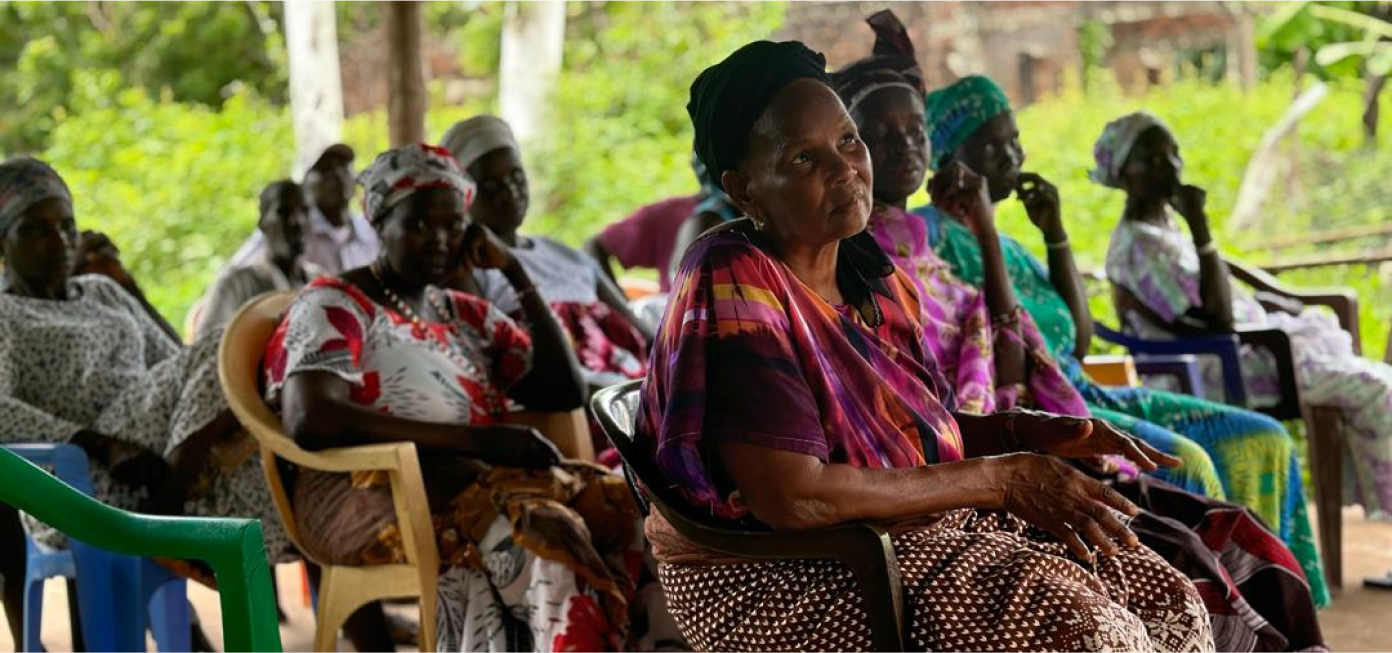A total of 2,957 people (including 1,000 women) obtained access to justice and legal remedies. The clearance of 1,425 cases on wrongful detention benefitted 1,779 inmates (including 52 women). Due to paralegal aid services, 1,178 people (including 948 women) accessed justice.
With UNDP’s support, the Human Rights Commission of Sierra Leone resolved 196 complaints. The Commission’s mobile complaint handling mechanism reached 296 people (including 128 women) in remote communities in three districts.
Through UNDP-supported outreach sessions on the UN Guiding Principles on Business and Human Rights, 300 individuals (including 124 women, 47 persons with disability and 51 youth) were reached in two districts. In addition, seven grievance redress committee, mandated to mediate disputes and address concerns for business-related activity, helped resolve three issues that had the potential to spur violence and impact adversely on lives and property: limited access to farmland, pollution of drinking water sources and refusal to employ qualified Indigenous people.
In recent years, Sierra Leone has made progress in state-building, democratic governance and peacebuilding, stayed resilient during two national health emergencies and four successive national election processes. However, the country remains polarised along ethnic political lines, particularly following the June 2023 1 elections, and the State's capacity to deliver equitable public services is compromised due to perceived politicisation of governance structures.
The criminal justice system in Sierra Leone faces institutional and legal challenges. The judiciary is underfunded and understaffed, while the demand for justice services is increasing. Inordinate delays in criminal proceedings and protracted trials impact the administration of justice, leading to case backlogs. Correctional centres across the country are overcrowded. Over 2,000 inmates were held in the Pademba Road male correctional facility as of October 2023, exceeding its capacity limit by 547 percent, as the facility was constructed to accommodate 324 individuals. The female correctional facility has capacity to accommodate 18 inmates, while 118 women were held there as of January 2023. Sexual and gender-based violence is prevalent in Sierra Leone along with high at-risk youth unemployment. All these factors have caused gradual decline in social cohesion.
To improve people’s access to justice and human rights, promote dialogue and mediation in local disputes, UNDP implemented the portfolio on Rule of Law, Strengthening Peace, and Social Cohesion.
ACCESS TO JUSTICE
In cooperation with the Judiciary of Sierra Leone, the Legal Aid Board 2 and Sierra Leone Correctional Services,UNDP supported the Judicial Week and Prison – Court sessions, which proved critical to address the persistent issue of case backlogs, unlawful detention and overcrowded correctional centres. The Judicial Week is a special court session that is held occasionally to hear cases and clear off the backlog at the High Court. Through the Prison – Court initiative, senior judges are deployed to correctional centres to review and expedite protracted cases, as well as review decisions which may have been unlawful. As these initiatives expedited trials and case reviews, 802 backlogged cases (77 percent of all of the backlog cases as of September 2023) were cleared and over 600 cases in which the verdicts had been wrongful, were reviewed. Almost 3,000 people (including 1,000 women) had access to justice and remedy as a result of UNDP’s support to the speedy adjudication, review and clearance of backlogged cases. In addition, 142 convictions were secured to ensure accountability for sexual offences.
To further support Sierra Leone in its commitment to eliminate violence against women and girls, UNDP modernized the Sexual Offences Model Court in Kailahun district by equipping it with solar powered electricity, 3 information and communication assets and furniture. Significant partnerships in all of the access to justice initiatives involved the Judiciary of Sierra Leone, the Legal Aid Board, the Ministry of Justice, and Correctional Services.
In partnership with the Legal Aid Board UNDP facilitated the provision of legal aid services for women and girls that included access to paralegals, legal education, advice and mediation of disputes. The Legal Aid Board successfully mediated disputes for 1,178 people (including 948 women) related to inheritance, divorce, alimony, child care, and land issues. In customary systems in Sierra Leone, where women often have little chance of accessing affordable justice, these services were significant in contributing to women’s legal empowerment and advancement of their rights.
